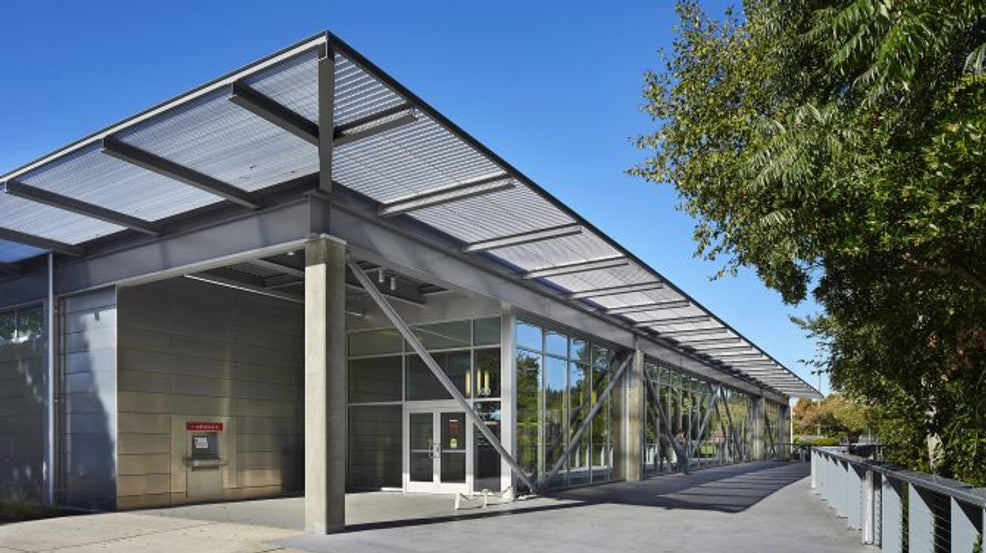A book for every reader: Expand your knowledge of Black authors, history, and ideas


At a recent program event at the King County Library System, author Jason Reynolds said that as a young Black person, he wanted to read things in books that were familiar to him, and about people who looked like him. Jo Anderson, the social impact coordinator from the library system tells that story as an example of why they curate lists of books for events like Black History Month.
"We try to highlight varied stories that offer a cross-section of culture and lived experience," Anderson said.
The Black experience is not monolithic. There is nuance, says Anderson, and there is often intersectionality between being Black and being female, gay, trans, or mixed race. All of these nuances make it important to find a broad range of reading ideas by people who are "thought leaders, with a story to share, who have done research on a topic of historic relevance."
This year, the theme for the list is Black health and wellness, which came from the Association for the Study of African American Life and History.
For young readers, Adrianna Ibrahim, the public service assistance for children, suggests Stamped (for Kids), adapted by Sonja Cherry-Paul.
"First Jason Reynolds remixed Ibram X. Kendi's "Stamped from the Beginning" for teens, and now, Sonja Cherry-Paul brings a new version for kids,” she says. "Young readers learn where racist ideas come from, and how to break down complex concepts such as anti-Blackness and colonialism—and how they are connected to racial inequity today. This book provides a critical framework to talk about racism and the role it plays in society."
Or open up Black Boy Joy, edited by Kwame Mbalia. Ibrahim says that Danielle Young coined the term #BlackBoyJoy after watching Chance the Rapper live his best, most joyous life at the 2016 MTV Music Video Awards.
"Since then, the term has been used to highlight and celebrate Black boyhood in all its forms," says Adams. A middle grade anthology, the book features stories that touch on themes such as friendship, family, and identity.
Teen Services Librarian Rachel Adams recommends Blackout by Dhonielle Clayton, Tiffany D. Jackson, Nic Stone, Angie Thomas, Ashley Woodfolk, and Nicola Yoon. The book contains six love stories.
"From breakups and long-term crushes, to love triangles and self-acceptance, these interconnected tales incorporate varied sexualities with integrity and joy. Most of these authors aren’t known for writing romance, but they tackle the genre with true heart. It’s refreshing to see a collection centering Black teens in love, and you’ll be left swooning long after the last page."
Part journal and activity book, part self-care guide, Resilient Black Girl, by M.J. Fièvre "offers tangible ways young Black women can combat the internal impacts of racist microaggressions," says Adams. It offers realistic advice in an approachable format.
You Are Your Best Thing, edited by Tarana Burke and Brene Brown is a "must-read for everyone" says Ruth Hernandez, a KCLS Adult Services Librarian. Another anthology, it helps to recognize and process the trauma brought "of systematic, institutional and structural racism, while emphasizing the beauty of vulnerability," she says. "Reading this book will challenge you to honor and bear witness to vulnerability, to learn from lived experiences and to just listen."
Hernandez also recommends Black Fatigue, by Mary-Frances Winters, who "provides concrete strategies and a thoroughly researched approach on how to be antiracist.” The author outlines how a personal sphere of influence to counter systemic racism.
Carlyn Ferrari, an assistant professor of English at Seattle University where she teaches courses on African American literature and culture, has further recommendations for those wanting to explore literature by Black authors.
George Schuyler’s, Black No More is a Harlem Renaissance text blending speculative fiction and satire to explore race relations, she says. Also from that era is Nella Larsen’s Passing, which explores the complex reasons why Black women chose to “pass” for white. “Larsen explores liminality in this text and plays with the popular "tragic mulatto" trope here," says Ferrari.
For Jane Austen superfans, Ferrari suggests Pride, by Ibi Zoboi, which retells Pride and Prejudice. It focuses on an Afro-Latinx family in Brooklyn and Ferrari calls it "incredibly fun."
Outdoor enthusiasts should consider Black Faces, White Spaces: Reimagining the Relationship of African Americans to the Great Outdoors by Carolyn Finney. "This is not a "literary" text, but it's an urgent, timely read, especially for residents of the Pacific Northwest," she says. "This text explains the complicated, overlooked, understudied narrative of nature in the U.S. and how it has been racialized as a "white space," one that has excluded Black people."
Gayl Jones’ Corrigedora got an endorsement from Toni Morrison, which Ferrari says is "better than I can say." Morrison said that "no novel about any Black women could ever be the same after this. This girl had changed the terms, the definitions of the whole enterprise."
Harriet Jacobs, Incidents in the Life of a Slave Girl is a slave narrative that is "a very timely, urgent read, especially since schools nationwide are trying to ban the teaching of anything pertaining to slavery and race. It tells us both about the atrocity that was the institution of slavery and what it was like for Black women."
If you like novels told in a different manner, consider the coming of age story told in verse by Jacqueline Woodson, Brown Girl Dreaming. "It’s stunning," Ferrari says.
Among those titles that are intersectional are Danez Smith’s Don’t Call Us Dead, a poetry collection combining meditations on police brutality and living with HIV as a Black, non-binary person; and Janet Mock’s memoir, Redefining Realness. Ferraris says it is "important to note here that she wrote this text with young Black trans girls in mind, so it's appropriate for a wide audience."
Pulitzer Prize-winner The Tradition by poet Jericho Brown is another must-read, as is anything by Samuel R. Delany, "one of the biggest names in science fiction."
While this list is a great start, Anderson says if you're searching for more, consider the library system’s Book Match program, through which librarians create a more personalized list based on a reader’s interest.
"If we don’t have the kind of thing you are looking for, you can also suggest that we purchase a particular title or something in a specific genre." You can suggest a purchase here.
“The purpose of having lists or programs is to reflect our diverse community,” Anderson says. “It is important to lean into our values of intellectual freedom, diversity, equity, and inclusion. We want our lists to plant seeds in the minds of readers.”
Original Here









